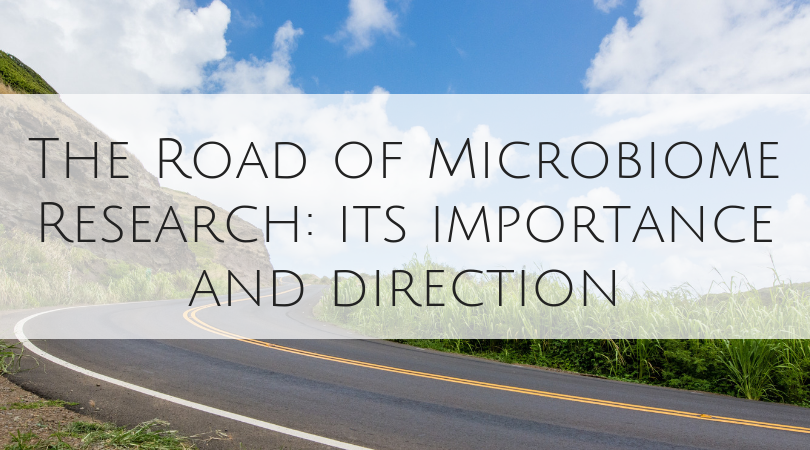Microbiome research is still in its infancy and there are plenty of questions still to answer. The fact is that the number microbial cells in our bodies is ten times higher than that of human cells, which shows that they certainly play an important role in our lives and our health.
This is the reason why various organizations across the world already invested as much as $920 million between 2012 to 2014. This trend has only continued, as the White House invested $121 million into the future research of the microorganisms in our stomach, and also hopes to raise more than $400 million in the coming years to keep the research on track.
All of this indicates that our microbiome, prebiotics, probiotics and synbiotics have a significant effect on our body’s overall health. With that in mind, let’s take a more detailed look at exactly why the research in this field is of such great importance.
The importance of microbiome research
Despite the fact that microbiome research is still in its developing stages, there is an abundance of evidence showing a number of ways in which it affects our health, including:
- Better overall gut health and smooth digestion: through the intake of fiber and prebiotic rich food, it is possible for people to improve their digestive system and normalize their metabolism, preventing digestive system inflammation, assisting in the passage of bowel movements, and in stabilizing preventing obesity.
- Cancer protection through an impeccable immune system: another positive effect that prebiotics have on the body is the strengthening of the immune system. The immune system benefits from prebiotics because these nutrients positively affect the gut, feeding our microbiome and improving the absorption of nutrients taken in through other types of food. Additionally, a digestive tract rich with microorganisms decreases the number of cancer-causing enzymes.
- Reducing the risk of heart disease: prebiotics and probiotics have a hypocholesterolemic effect, lowering the amount of cholesterol in the blood. Furthermore, potassium and sodium levels directly affect blood pressure and these nutrients stay balanced with the presence of both prebiotic and probiotic nutrients in the digestive tract.
- Weight balance: intake of fiber is known to provide a variety of positive benefits for general health. This is because prebiotic and probiotic organisms stimulate the sense of fullness, as they are digested for a longer period of time, preventing the hunger centers to activate in the brain
All this is only the tip of the iceberg when it comes to the benefits of prebiotics, probiotics and synbiotics. This is why so much is being invested in the research and the future of this scientific branch is looking bright. Let’s take a look at the potential benefits future research is going to bring.
The future direction of the research
The above-mentioned benefits have been proven through various studies; however, there is so much more to discover about our body’s microbiomes:
- Fiber: we are all aware that fiber should be in our daily nutrition; however, scientists are still determining the different fiber elements coming from different food and how each of these affect the body. This is very important, as it is likely that some fibers coming from particular food sources are more effective than the others – and don’t be surprised if it turns out that, like microbiome diversity, our bodies will be healthiest when we consume a diverse variety of fibers. This is why our Great Gut fiber products are a blend of multiple fibers.
- Long-term effects of prebiotics: as we’re still in the early stages of microbiome research, research doesn’t have a lot of information on the long-term effects of prebiotics.
- The perfect dosage: given a little more time to study ongoing research results, scientists should be able to determine the best prebiotic dosage for men and women. Right now, all we can go on are the dietary fiber recommendations and how our bodies feel when we consume specific amounts of prebiotics. This is why we recommend starting with a small amount, see how your body responds, and then slowly increasing the amount of prebiotics in your diet.
- Effects on different individuals: as none of us are the same, research needs to determine the effects of prebiotics and probiotics on various types of people. We already know that those who have FODMAP issues can indeed have issues with fiber. More research will help us better understand how we can adjust fiber amounts so that everyone can benefit from their positive effects without causing issues for their body.
These are the questions that need answers, which is why the US government is investing so much in this scientific field. There is much to be learned, however, it is certain that microbiome research is going to lead us to reaching longer life-spans, as we get to know more about our digestive system and its impact on our overall wellbeing.
Resources:
Nature.com - White House goes big on microbiome research
Nature.com - An assessment of US microbiome research
Pubmed.org - Probiotics, prebiotics, and synbiotics.
Pubmed.org - Prebiotic effects: metabolic and health benefits.

